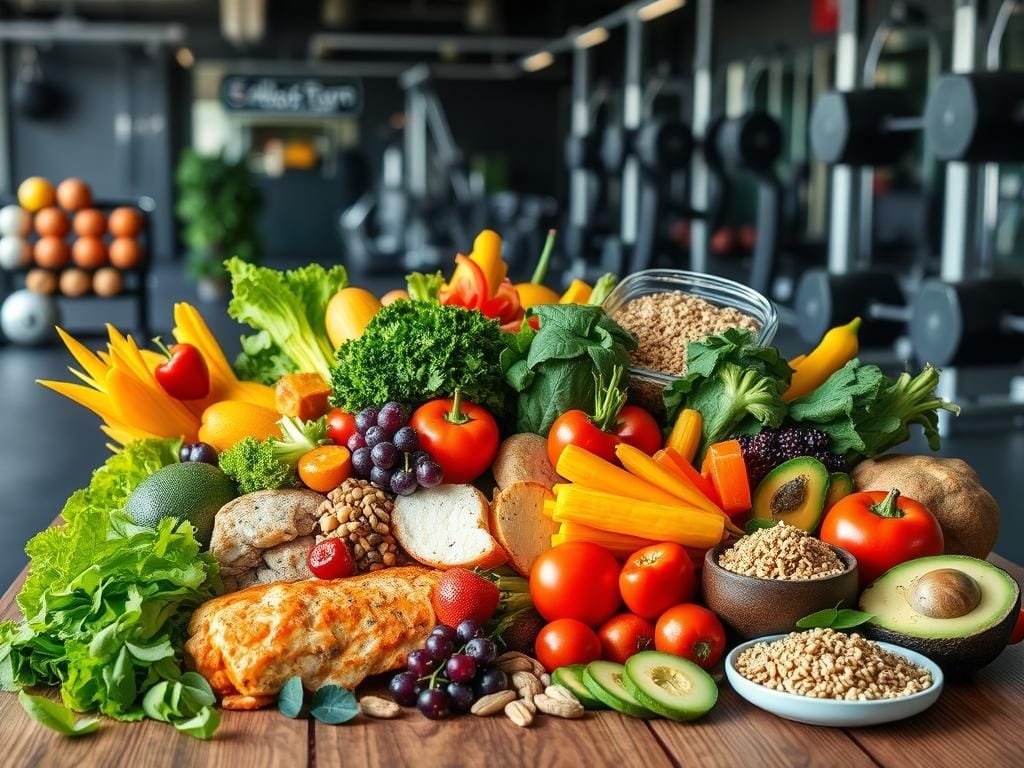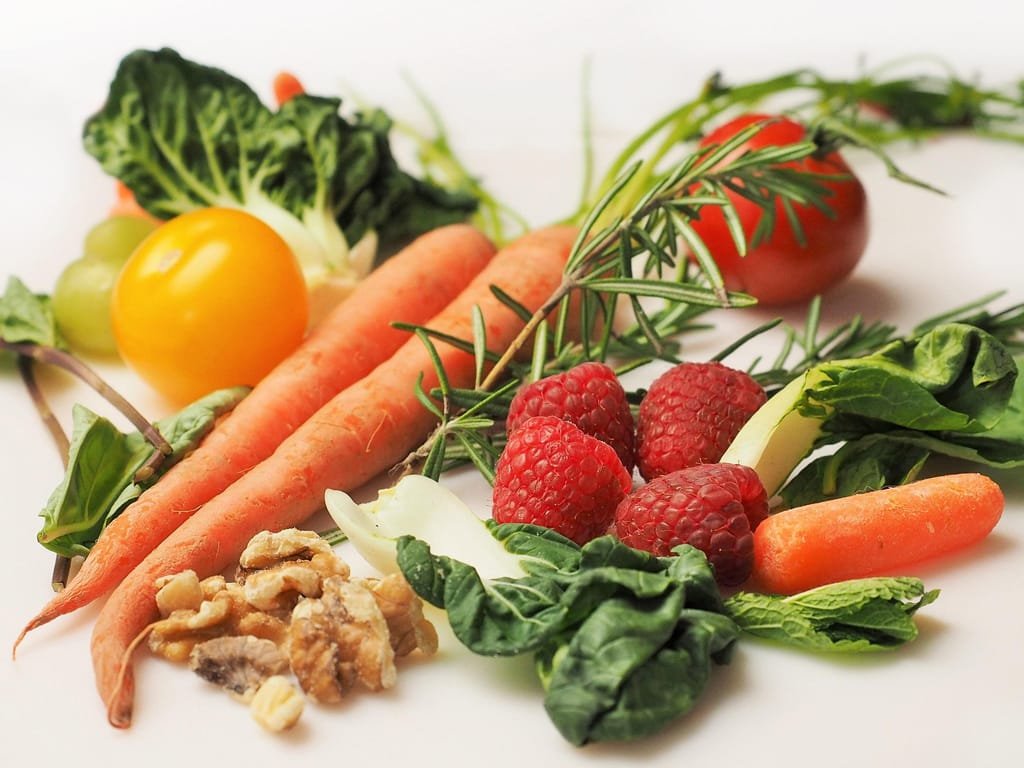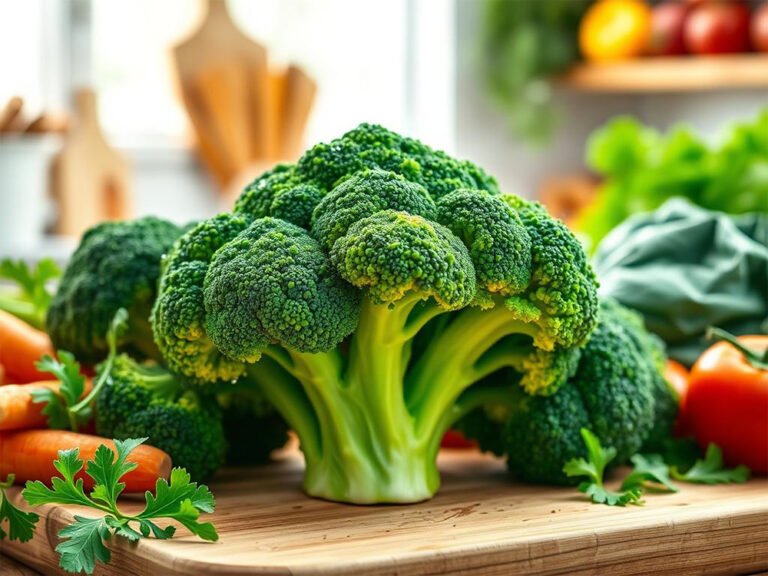The Best Fluffy Pancakes recipe you will fall in love with. Full of tips and tricks to help you make the best pancakes.
How Can I Improve My Muscle Recovery Nutrition With Diet? Best Foods for Muscle Recovery, Muscle Repair and Recovery
Have you ever thought about how your diet affects muscle recovery after a tough workout? Recovery is vital for your fitness journey. It matters whether you’re strength training, running, or doing high-intensity workouts
Table of Contents
ToggleNutrition is key for recovery, It helps repair muscle tissue, reduces soreness, and gets your body ready for the next session. But what exactly should you eat to optimize muscle repair and recovery?
This guide covers key nutrients and top foods for muscle recovery. These tips can boost your fitness. We’ll show you how to use your diet for recovery. Your meals can help you recover. Protein-rich foods rebuild muscles. Anti-inflammatory options reduce soreness. You’ll find useful tips on when to eat and how to stay hydrated. This will help your body recover and become stronger.
Ready to take charge of your recovery? Let’s explore science-backed ways to fuel your body effectively. After all, a strong recovery starts on your plate!

- Nutrition is essential for effective muscle recovery.
- Adequate nutrition helps reduce muscle soreness.
- Diet strategies can enhance muscle repair processes.
- Post-exercise meals significantly impact recovery time.
- Incorporating the right nutrients is critical for optimal recovery.
- Understanding your body’s nutritional needs can improve performance.
Exercise-induced Muscle Damage and Recovery
When you exercise, your body changes in ways that can cause muscle damage. This damage is not bad; it’s part of how muscles grow and adapt. Knowing how muscle fibers react to exercise helps you recover better after working out.
What Happens During Exercise?
Intense exercise causes your muscle fibers to tear slightly. This happens because of the stress on your muscles, leading to soreness and inflammation. This damage tells your body to start repairing, which helps your muscles recover over time.
The type and length of your workouts affect how much damage you get. This, in turn, influences how long it takes for your body to heal.
The Role of Muscle Fibers
Skeletal muscle fibers have different roles in how you perform and recover. There are slow-twitch and fast-twitch fibers. Slow-twitch fibers handle endurance activities, while fast-twitch fibers are for quick power and strength.
Each type of fiber reacts differently to exercise, affecting muscle damage and recovery. Training and recovery strategies that target specific fibers can improve your overall performance and recovery.
The Importance of Nutrition in Muscle Recovery
Nutrition is key for muscle recovery, mainly when dealing with sore muscles. After hard workouts, muscles need the right food to heal and get stronger. Knowing how to choose the best foods can make a big difference in how fast you recover.
How Nutrition Affects Muscle Soreness
Muscle soreness comes from tiny tears in muscle fibers during exercise. To ease this pain, eating the right foods is important. Carbs help refill glycogen, and proteins aid in muscle repair. Eating a mix of these can help you recover faster and feel less sore.
Nutrient Timing for Optimal Recovery
When you eat is just as important as what you eat. Eating carbs and proteins right after working out helps a lot. This timing helps your body use energy efficiently right after exercise. It makes you ready for your next workout sooner.
Key Nutrients for Muscle Repair
Proper muscle repair needs specific nutrients. Amino acids are key, helping with muscle repair. Knowing their importance can greatly help your recovery after working out.
Amino Acids and Muscle Protein Synthesis
Amino acids are the building blocks of protein and are vital for muscle recovery. Branched-chain amino acids (BCAAs) are key for muscle building. They also help reduce damage after tough workouts. Adding foods rich in BCAAs, like whey protein or lean meats, can boost your muscle’s repair ability.
Vitamins and Minerals Essential for Recovery
Vitamins and minerals also play a big role in muscle recovery. Vitamin C helps with collagen, which is important for tissue repair. Vitamin D is key for muscle function and immune health. Minerals like magnesium help with muscle contractions and act as a natural anti-inflammatory. Zinc is important for protein synthesis, helping with recovery. It’s important to have a balanced intake of these nutrients for the best recovery.
| Nutrient | Role in Recovery | Sources |
|---|---|---|
| Amino Acids | Supports muscle protein synthesis | Whey protein, eggs, meat |
| Vitamin C | Aids in collagen synthesis | Citrus fruits, berries, peppers |
| Vitamin D | Enhances muscle function and strength | Fish, fortified dairy, sunlight |
| Magnesium | Assists muscle contraction and recovery | Nuts, seeds, whole grains |
| Zinc | Facilitates protein synthesis | Meats, shellfish, legumes |

Muscle Recovery Nutrition: What to Include in Your Diet
To support your muscle recovery, focus on the best foods. A balanced diet with quality nutrients helps heal muscles and boosts performance. Include a variety of foods from key groups in your meals.
The Best Foods for Muscle Recovery
Your diet should have certain foods for muscle recovery:
- Lean Proteins: Chicken, turkey, fish, beans, and legumes help repair and build muscles.
- Whole Grains: Brown rice, quinoa, and whole-grain bread give you the carbs you need for energy.
- Fruits: Bananas, berries, and oranges have vitamins and antioxidants that fight inflammation.
- Vegetables: Spinach, kale, and broccoli add minerals and keep you healthy.
Incorporating Macronutrients
It’s important to balance your macronutrients for better recovery. A mix of proteins, carbs, and fats helps you recover faster and perform better. Here are some tips:
- Make sure each meal has lean protein for muscle repair.
- Add complex carbs to refill glycogen stores after working out.
- Include healthy fats like avocados and nuts for body functions.
By choosing the right foods and balancing your macronutrients, you’ll recover muscles well.
Post-Exercise Nutrition Strategies
Good nutrition after exercise is key to recovery. Knowing when to eat and what to eat helps your muscles heal. After a workout, it’s important to refuel your body quickly.
Effective Meal Timing
When you eat after exercise matters a lot. Try to eat a meal with carbs and protein within 30 to 60 minutes. This helps your body use nutrients well and recover faster.
Here are some tips for better meal timing:
- Plan meals or snacks ahead of time.
- Have recovery foods ready, like after hard workouts.
- Use a post-workout shake if eating a full meal is hard.
Snacks that Aid Recovery
Snacks are great for quick nutrition without a big meal. Look for snacks with protein and carbs for muscle repair. Here are some good snacks:
| Snack | Protein (g) | Carbs (g) |
|---|---|---|
| Greek Yogurt with Honey | 15 | 20 |
| Peanut Butter Banana Toast | 8 | 30 |
| Cottage Cheese and Pineapple | 14 | 11 |
| Protein Smoothie | 25 | 35 |
| Tuna on Whole Grain Crackers | 20 | 15 |
Using these nutrition tips helps you recover faster and feel better. By eating right and choosing good snacks, you support your body’s healing after exercise.
Hydration’s Role in Muscle Enhance Recovery
Hydration is key for muscle recovery and overall health. Not drinking enough water can slow down muscle repair. This makes it harder to get back to your workout routine. Knowing how to stay hydrated is important for muscle health.
Water and Electrolytes
Water keeps your body’s fluids balanced. Electrolytes like sodium, potassium, and magnesium help muscles work and nerves function. They prevent cramps and dehydration, helping your muscles recover faster.
Hydration Before, During, and After Workouts
Staying hydrated before, during, and after workouts is vital. Here are some tips to help:
- Before Exercise: Drink 16-20 ounces of water 2-3 hours before your workout.
- During Exercise: Drink 7-10 ounces of water every 10-20 minutes for activities over 30 minutes.
- After Exercise: Drink 16-24 ounces of water for every pound lost during your workout.
Reducing Muscle Soreness Through Diet
Using the right diet can help you recover faster from workouts. Eating foods that fight inflammation is key. These foods give your body the nutrients it needs to heal. Also, some supplements can help your body recover even better.
Anti-inflammatory Foods
Eating foods that fight inflammation is important. These foods help reduce soreness and support muscle recovery. Here are some great options:
- Berries (such as blueberries and strawberries) – Rich in antioxidants that combat oxidative stress.
- Fatty fish (like salmon and mackerel) – High in omega-3 fatty acids, which have been shown to reduce inflammation.
- Leafy greens (including spinach and kale) – Packed with vitamins and minerals that support recovery.
Nuts and seeds, like walnuts and flaxseeds, are great for healthy fats. They also have anti-inflammatory benefits.
- Turmeric – Contains curcumin, which is effective in reducing muscle discomfort.
Supplements That Can Help
There are also supplements that can help with muscle soreness. Here are some of the research supports:
| Supplement | Benefits | Recommended Dosage |
|---|---|---|
| Omega-3 Fatty Acids | Reduces inflammation and aids muscle recovery | 1,000-3,000 mg per day |
| Curcumin | Anti-inflammatory properties that help decrease soreness | 500-1,000 mg per day |
| Tart Cherry Extract | Reduces muscle pain and soreness post-exercise | 240-480 mg per day |
Adding anti-inflammatory foods and supplements to your routine helps a lot. It’s a good way to reduce soreness and recover faster. By doing this, you support your body’s healing and improve your workout performance.
Meal Planning for Effective Muscle Recovery
Planning meals is key to getting your muscles to recover well. By focusing on meal planning, you can make meals that help your body heal, reduce soreness, and stay healthy. A balanced plate is important to give your body the nutrients it needs after working out. Try to eat a variety of foods to help meet your recovery goals.
Creating a Balanced Plate
A balanced plate should have proteins, carbohydrates, and healthy fats. Each one helps in different ways to recover muscles:
- Proteins: Choose lean sources like chicken, fish, or legumes to fix muscle damage.
- Carbohydrates: Whole grains, fruits, and veggies help refill energy stores and give you energy.
- Healthy Fats: Avocados, nuts, and olive oil can lower inflammation and aid in recovery.
Remember to watch your portion sizes. You want enough food to help with recovery but not too much.
Sample Recovery Meal Plans
Creating good recovery plans means making meals that match your workout’s intensity and length. Here’s a table with meal plans for different recovery needs:
| Workout Intensity | Recovery Meal | Key Ingredients |
|---|---|---|
| Low Intensity | Quinoa Salad | Quinoa, chickpeas, cucumber, olive oil, lemon juice |
| Moderate Intensity | Grilled Chicken with Sweet Potatoes | Grilled chicken breast, sweet potatoes, steamed broccoli |
| High Intensity | Salmon with Brown Rice | Baked salmon, brown rice, asparagus, avocado |
These meal plans can be changed to fit your personal tastes and goals. Good meal planning lets you control your recovery and keep your muscles healthy.
The Impact of Protein on Muscle Mass
Protein is key for building and keeping muscle, mainly for those who do resistance training. Knowing where to get your protein and how much you need can really help your progress and recovery.
Choosing the Right Protein Sources
Look at both animal and plant-based proteins. Animal proteins like chicken, beef, and eggs have all the amino acids you need for muscle repair. Plant proteins, such as beans, lentils, and quinoa, are good too but might miss some amino acids. Mixing both can give you a balanced diet that helps your muscles.
How Much Protein Do You Need?
Your protein needs change based on your age, weight, and how active you are. A good rule of thumb is to eat 0.8 to 1.2 grams of protein for every kilogram of your body weight if you want to build muscle. Eat protein-rich foods within an hour after working out to help your muscles grow. Tracking your protein intake helps you meet your needs and aids in muscle recovery.
Listening to Your Body: Signs of Recovery
It’s important to know when your body is recovering from workouts. Knowing the difference between normal muscle tiredness and serious signs can help you recover better. Changing your diet to meet your body’s needs is also key for muscle repair and top performance.
How to Recognize Muscle Fatigue
It’s not always easy to tell if you’re just tired or overdoing it. Look out for these signs:
- Persistent soreness lasting beyond 72 hours.
- Decreased strength or performance during workouts.
- Increased irritability or mood swings.
- Difficulty sleeping or restless nights.
- Elevated resting heart rate.
Spotting these signs helps you adjust your workouts and diet wisely.
Adjusting Your Diet Based on Recovery Needs
Your diet is key to recovery. If you’re feeling fatigued, try these diet changes:
- Increase protein intake to support muscle repair.
- Incorporate more anti-inflammatory foods, like salmon and leafy greens.
- Enhance hydration to aid in recovery processes.
- Focus on complex carbohydrates to replenish energy stores.
- Monitor your caloric intake to ensure it meets your recovery demands.
Customizing your diet can help your muscles recover faster and improve your performance.
| Signs of Recovery | Diet Adjustments |
|---|---|
| Persistent Soreness | Increase protein and anti-inflammatory foods |
| Decreased Performance | Replenish energy with complex carbohydrates |
| Mood Swings | Enhance hydration and consider snacks for energy |
| Restlessness | Adjust caloric intake based on overall needs |
| Elevated Heart Rate | Prioritize nutrient-dense meals to support recovery |

Conclusion
Focusing on muscle recovery nutrition is key to better performance and less soreness. This article has shown you many ways to improve muscle repair. You now have a detailed guide to help your recovery.
Remember, each part of your diet, like protein, hydration, and anti-inflammatory foods, is important. A balanced diet supports your body and helps you perform better in fitness.
Using these tips in your daily life helps you recover faster. It also prepares your body for future workouts. Start using these muscle repair nutrition strategies to reach your strength and endurance goals.
FAQ
How can I improve my muscle recovery nutrition with diet?
To boost your muscle recovery, eat a balanced diet. Include proteins, carbs, and healthy fats. Foods like lean meats, fish, eggs, and legumes are great for muscle repair.
Also, add fruits and veggies to fight inflammation and aid in recovery.
What is the role of muscle fibers in recovery?
Muscle fibers are key in recovery. They repair and rebuild after exercise. This is because exercise causes tiny tears in the muscle tissue.
Good nutrition helps these fibers get stronger again.
How does nutrient timing affect muscle recovery?
Timing your nutrients is important for recovery. Eating carbs and proteins after exercise helps restore muscle glycogen. It also promotes muscle repair. Try to eat within 30 minutes to two hours after working out.
Which key nutrients are essential for muscle repair?
Amino acids, like BCAAs, and vitamins and minerals are vital for muscle repair. Proteins give structure. Vitamins C and D, along with minerals like magnesium and zinc, aid recovery. They also help reduce pain and inflammation.
What are the best foods for muscle recovery?
Good foods for recovery include lean proteins, whole grains, and fruits and veggies. Foods like berries and fatty fish are also great because they reduce soreness and support muscle repair.
How can I create an effective post-exercise nutrition strategy?
For a good post-workout meal, mix proteins and carbs. This combo helps restore energy and aids in muscle repair. Try snacks like protein shakes, Greek yogurt with fruit, or a turkey sandwich for the best recovery.
What is the role of hydration in muscle recovery?
Hydration is key for muscle recovery. It keeps muscles working well and helps nutrients reach them. Drink water before, during, and after workouts to aid in recovery.
How do anti-inflammatory foods help reduce muscle soreness?
Foods like berries, leafy greens, and fatty fish reduce soreness by fighting inflammation. They provide nutrients that help repair and recover muscles, making them great for post-workout pain.
What should I consider when meal planning for muscle recovery?
When planning meals for recovery, aim for a balanced plate with proteins, carbs, and fats. Consider your activity level and intensity. Use sample meal plans to help repair muscles and keep energy up.
How much protein do I need for optimal muscle mass?
Protein needs vary based on activity and goals. For those who lift weights, 1.2 to 2.0 grams of protein per kilogram of body weight is recommended. Choose high-quality sources like eggs, dairy, and legumes for muscle support.
What are the signs of muscle recovery I should look for?
Look for signs like less soreness, better range of motion, and returning strength. Recognizing these signs helps you know when you’re recovering well and when you might need to adjust your diet and exercise.



